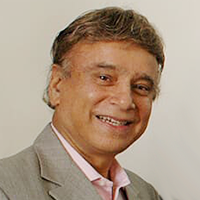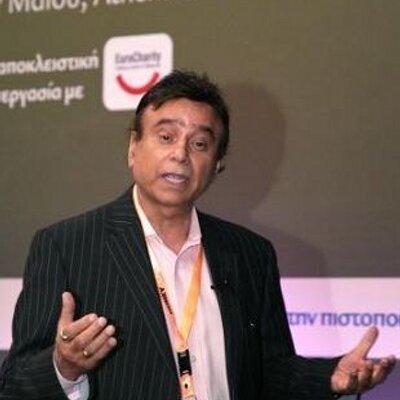
 Mar 24, 2020
Mar 24, 2020
Agree with Mr Wolf, “Nothing can eliminate corruption.” None tried better and failed so badly than Lord Kishna himself. (B.Gita 3.21,3.37,3.38 ,3.41). His largest devotees are in India. But power of tech has changed all this. The downfall of companies that survived through manipulation has just begun.
Corruption is such a global issue and businesses so interdependent that any comparison has to be international. Indian penchant for exaggeration is a measure of their impatience with those who have repeatedly failed them . That is so in all emerging and aspirational economies. Thankfully India has had no such governance racket of the kind UK witnessed. Yet only three Asian peers were suspended.
It is important to distinguish detection and occurrence. Both Satyam and Enron were systemic. All FIs off loaded their Satyam holding well before Mr Raju confessed on 7 Jan 2009. Why is it that corporate governance frauds get unmasked only when the tide goes out? Insider trading is so entrenched that even the west shies away from talking about it. The agent company that funnelled Madoff funds from US to Europe was registered in the UK.
The real instrument of growth is business not government. Ford’s model T empowered the masses and made money for itself. Gains spread. But driving Model T in 2011that uses only 2% of the fuel to drive personal mobility will only choke our grandchildren to death. In 1970s, IBM 1401 had 8k memory and filled a room full of steel. Capacity of an iPad today is million times more and eco impact a fraction. Think why such innovation never happened in the auto industry and why it could not think of cars that soak CO2 as you drive?
Unfortunately as businesses succeed they get trapped in old technology that brought them there and thus cause the greatest damage to poor. Thomas Edison is a classic example. Alarmed by the success of his competitor George Westinghouse, Edison launched a smear campaign to demonstrate the dangers of alternate current even going to the extent of electrocuting animals to make his point thus delaying AC to reach the poor as gas lighting companies did to electric companies.
Growth unless it is holistic is divisive and invidious. Holistic growth happens only through entrepreneurship and innovation of the business not by handouts of the governments as has been proved time and again. Africa is a classic example. Nothing has improved the lot of poor more than mobile telephony. Government’s overriding duty is to provide level playing fields by ensuring competition is fair and there is a safety net for the weakest shared by the beneficiaries. Markets are like parachutes. They function only when open.
For this businesses have to be challenged to bring new technologies – innovate or perish. Here the governments do the greatest damage by protecting dying businesses and letting them continue seek rent turning businesses ere Here Here HH into parasites upon society preying upon the poor and unfortunate.
Experience shows liberalisation has increased rent seeking. We are threatened by financial plutocracy of the Goldman Sachs variety. Even British legislators have quietened completely after all the talk of banker’s greed. Instead threats are coming from Bank CEOs. Poor neighbourhoods are living shorter and unhealthy lives in UK and millions have never had a job in their life time while rich classes continue to scrounge on the system. Obama has lost control of the House despite his health reforms to help the US poor because of big business. Eliot Spitzer who, as Attorney General of New York, fined Citgroup, CSFB and Merrill Lynch $1.1 billion back in 2001 for their fraudulent conduct well before the draconian SOX had the whole Wall Street ganged up against him.
I agree hegemony of business and government is the most pernicious form of corruption. I am not sure who is corrupting whom. I find them indistinguishable like tea in sugar. All governments pay hostage to the monied class. It enables pharma MNCs to discourage sales of mosquito nets to sell their medicines and abuse patent laws against Indian generics by incremental improvements. It permits companies to cartelise , abuse their dominance without impunity and turns markets into casinos denying benefits of globalisation to the poor and making a farce of liberalisation and free competition.
Problem also lies with our own intellectual class who sit on the boards as independent directors commanding salaries more than executives but finding it difficult to independently understand something when their remuneration depends on not understanding it.
So what can we do to fix it? Firstly we have to make businesses aware that never before in human history there was so much opportunity to make money through clean, green and gharib agenda. That will happen only if they become scathingly self critical and brutally transparent. To do this, like Shiva and Schumpeter, they have to go for creative destruction, continually disrupting the status quo harnessing turbulence through constant innovation, powered by transparency, engagement, accountability and responsibility.
We cannot do this unless we challenge our Harvard led business school model that turns out graduates who know how to perfectly seize the known but not how to seize the unknown imperfectly. We talk about governance deficit but the problem is ethical deficit that starts with our education based on success at all costs, winner takes all, do it right first time and short termism fed by concealment, cosiness (Grouphink:Irving Janis,1972) and corruption to get rich quick to pay back the king’s ransom paid for admission. What they need to learn is how to handle failures. Poor’s lot is not going to change without unleashing innovation. No innovation is going to happen without thousands of failures. Glory lies not in succeeding every time but rising faster each time we fail. We have to learn how to wear failures like badges of honour.

President, World Council For Corporate Governance (WCFCG) | A Serial Social Entrepreneur.
Owned by: Institute of Directors, India
Disclaimer: The opinions expressed in the articles/ stories are the personal opinions of the author. IOD/ Editor is not responsible for the accuracy, completeness, suitability, or validity of any information in those articles. The information, facts or opinions expressed in the articles/ speeches do not reflect the views of IOD/ Editor and IOD/ Editor does not assume any responsibility or liability for the same.
About Author

President, World Council For Corporate Governance (WCFCG) | A Serial Social Entrepreneur.
View All BlogsMasterclass for Directors
Categories